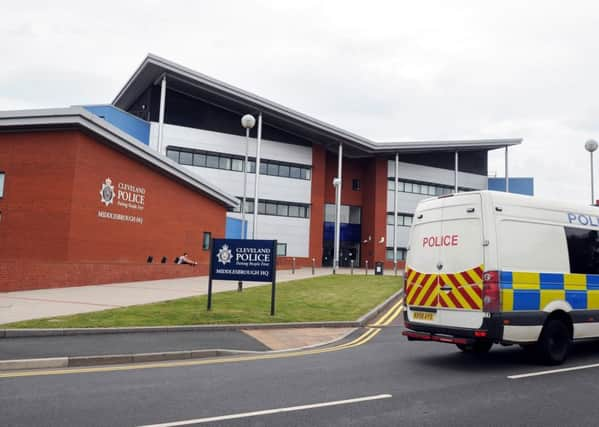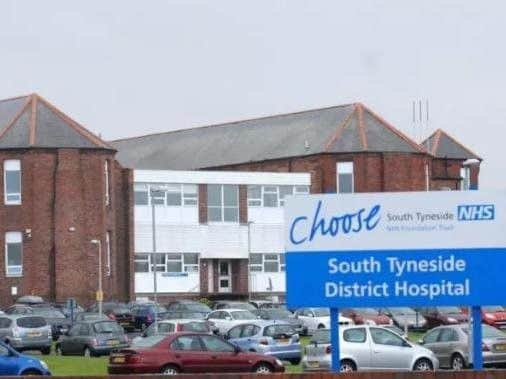Cleveland Police visiting 13 bereaved families as loved-ones' organs are retained at hospital


Human tissue samples were discovered at South Tyneside District Hospital, South Shields, during an audit in March 2015.
Cleveland Police, alongside Northumbria Police, are now trying to identify the samples and said officers are visiting next of kin personally to explain the situation.


Advertisement
Hide AdAdvertisement
Hide AdNorthumbria Police said the force has been working together with the South Tyneside NHS Foundation Trust, local Coroners, Human Tissue Authority and the Home Office to carry out an audit with regards to human tissue holdings.
The audit was completed in March 2015 and police were made aware that some human tissue samples had been identified at South Tyneside District Hospital that have been kept longer than necessary.
Specially trained Cleveland Police officers are in the process of visiting the 13 families involved in their force area and will be working with them to make sure that their wishes are carried out regarding their loved ones.
A spokesperson for Cleveland Police said: “We knew that this news would come as a shock to the families involved and so we decided that it was only right that specially trained officers visited them to give them the news in person.


Advertisement
Hide AdAdvertisement
Hide Ad“We will continue to work with Northumbria Police, the hospital, the coroner and the families to make sure that there is dignity afforded to the dead.”
The Human Tissue Authority (HTA) said a number of items of human tissue, retained for criminal justice and coronial purposes over the course of the last 20 years.
A spokesman for the HTA said: “The HTA is aware of a situation in the North East of England where a number of items of human tissue, retained for criminal justice and coronial purposes over the course of the last 20 years, have been kept for longer than was necessary.
“We understand that an audit has been conducted by the authorities involved, and specially trained officers will be talking to all of the families affected.
Advertisement
Hide AdAdvertisement
Hide Ad“Discovering that the samples are still in storage will clearly be upsetting for these families, and of concern to the wider public; it is important to stress that significant improvements have been made to the systems governing the retention of human tissue samples and the public can be assured that the risks of this happening again are low.”
A spokesman continued: “In any unexplained death, post-mortem tissue samples are taken as part of the investigation for evidential purposes and to find out the cause of death.
“In some cases, these samples have to be kept for significant periods of time to support the criminal investigation and fulfil legal requirements.
“The HTA has worked with the Home Office to develop police procedures on the management of human tissue, and there are clear standards and guidelines on the disposal of human tissue which HTA-licensed establishments, where these samples may be held, are expected to meet; you can read more about these in our updated Code on post-mortem examination, which is due to come into force in April this year: Draft Code of Practice B – Post-mortem Examination.
Advertisement
Hide AdAdvertisement
Hide Ad“We will be keeping in close contact with those involved in this case to provide any advice we can.”
Detective Chief Inspector Lisa Theaker, of Northumbria Police, who is leading the operation said: “We understand this will be upsetting to those involved and we will offer them as much support as possible.
“We have specially trained officers who are personally visiting each family to explain the situation.
“Victims and their families are our absolute priority and we will ensure their concerns are listened to and we will fully support their needs.
Advertisement
Hide AdAdvertisement
Hide Ad“We have made significant improvements in relation to the management and retention of human tissue samples and we want to reassure the public that risks of this happening again are low.
She continued: “In any unexplained death, human tissue samples are retained as part of the investigation for evidential purposes and to determine the cause of death.
“In some cases, this material can be retained for significant periods of time to support the criminal investigation and fulfil legal requirements.
“We will continue to fully support the families through this process and ensure their wishes are met.”
Advertisement
Hide AdAdvertisement
Hide AdBefore 2010 it became apparent that human tissue samples going back many years may have been retained by police forces and hospitals across the country following post-mortem examinations.
All of these retentions were made prior to 2006 when the Human Tissue Act 2004 came into force. While the police service is not subject to the provisions of this Act, it was the first time that formal guidance in relation to human tissue was made available to the force.
The Association of Chief Police Officers (ACPO), with the assistance of the National Policing Improvement Agency (NPIA), advised that police forces audit their holdings of human tissue.
In 2010, all police forces conducted an audit of their holdings of tissue samples in their areas. In line with other forces, Cleveland Police audited hospitals in its force area and no samples were identified.
Advertisement
Hide AdAdvertisement
Hide AdIn 2016 Northumbria Police informed Cleveland Police that a number of human tissue samples had been identified at South Tyneside District Hospital.
The samples related to cases from across the North East.
It is understood that the samples were taken to the hospital by a pathologist who covered a large area of the North East and who had worked from the site over a number of years.
Specially trained Cleveland Police officers are in the process of visiting the 13 families involved in their force area and will be working with them to make sure that their wishes are carried out regarding their loved ones.